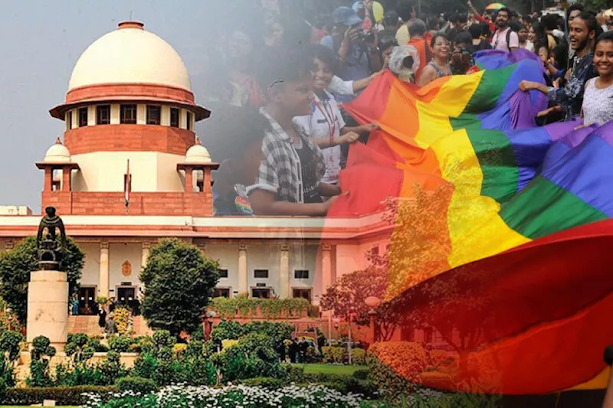India's Supreme Court is set to hear arguments on legalizing same-sex marriage,
a landmark decision that could have significant implications for the LGBTQ+ community in the country. Currently, same-sex relationships are not recognized under Indian law, and homosexuality was only decriminalized in 2018.
The petition to legalize same-sex marriage in India was filed by a same-sex couple who were denied the right to marry under the current legal framework. The couple argued that the denial of the right to marry violated their constitutional rights to equality, dignity, and freedom of expression.
The decision by the Supreme Court to hear the arguments on same-sex marriage is a positive step forward in the fight for LGBTQ+ rights in India. It offers hope to the community that they will be able to achieve equal rights and recognition under the law.
Legalizing same-sex marriage in India would have far-reaching implications for the LGBTQ+ community, not only in terms of legal recognition but also in terms of social acceptance. It would signal that India is moving towards a more inclusive and progressive society, where all individuals are treated with dignity and respect.
However, the road to legalizing same-sex marriage in India is likely to be challenging. There are still significant social and cultural barriers to overcome, and conservative elements within Indian society are likely to resist any efforts to change the status quo.
Nevertheless, the fight for LGBTQ+ rights in India has been gaining momentum in recent years, with the decriminalization of homosexuality in 2018 being a significant milestone. The Supreme Court's decision to hear arguments on legalizing same-sex marriage is further evidence of the growing acceptance of the LGBTQ+ community in India.
In conclusion, the Supreme Court's decision to hear arguments on legalizing same-sex marriage in India is a positive step forward in the fight for LGBTQ+ rights in the country. It offers hope to the community that they will one day achieve equal rights and recognition under the law. However, there is still much work to be done to overcome social and cultural barriers and achieve true equality for all individuals, regardless of sexual orientation or gender identity.



Comments
Post a Comment